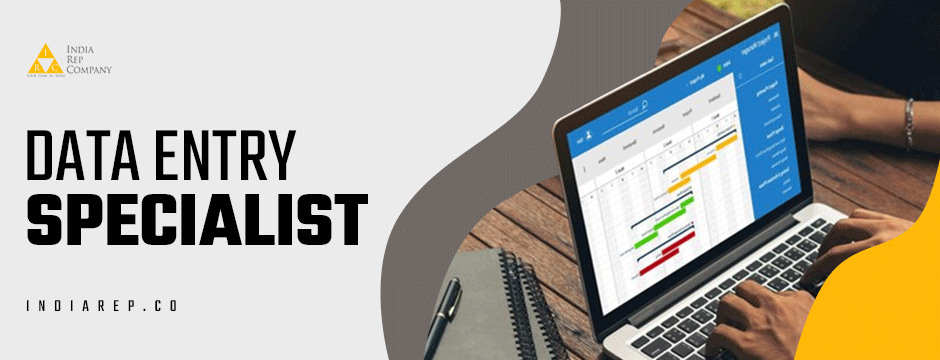Data process outsourcing (DPO) is a critical aspect of modern business operations. This outsourcing helps companies to utilize global talent and technology for efficient data management. Over the past few decades, outsourcing has evolved significantly, with advancements in technology. We have seen that changes in business practices in the USA are driving new trends and opportunities. So, in this blog, we will explore the current global trends in data process outsourcing as well as data entry outsourcing and what the future may hold for this rapidly changing industry.

1. Adoption of Advanced Technologies
One of the most significant trends in data process outsourcing is the adoption of advanced technologies such as-
| Artificial intelligence (AI) | AI algorithms can analyze vast amounts of data, identifying patterns and making decisions based on historical data. This capability leads to more accurate and effective data processing, which is essential for data-heavy industries such as finance, healthcare, and e-commerce. |
| Machine learning | In data process outsourcing, machine learning algorithms can identify trends and anomalies within data sets, providing valuable insights for businesses. |
| Automation | Automated data processing systems can handle large volumes of data quickly and accurately, minimizing the risk of human error. Additionally, robotic process automation (RPA) can be used to automate entire workflows, improving efficiency and consistency in data processing operations. |
In this way, these technologies enable service providers to process data more efficiently and accurately, reducing the need for manual intervention and human error.
2. Data Security and Compliance
As data privacy regulations such as the General Data Protection Regulation (GDPR) and the California Consumer Privacy Act (CCPA) become more stringent, companies are prioritizing data security and compliance in their outsourcing strategies. So, service providers need to adhere to these regulations to protect sensitive data and avoid potential fines or reputational damage. This trend has led to increased investment in cybersecurity measures and data encryption technologies within the data entry outsourcing industry.
3. Cloud-Based Outsourcing
Cloud computing has revolutionized data process outsourcing by providing scalable, flexible, and cost-effective solutions. Cloud-based outsourcing helps companies access data processing services on-demand, without the need for costly infrastructure investments. Also, this trend enables USA businesses to adapt quickly to changing needs and scale their operations as required. Additionally, cloud-based solutions offer enhanced collaboration between outsourcing providers and their clients, fostering seamless communication and data sharing.
4. Nearshoring and Onshoring
Traditionally, data process outsourcing involved offshoring work to countries with lower labor costs. However, recent trends indicate a shift towards nearshoring (outsourcing to neighboring countries) and onshoring (outsourcing within the same country). This shift is driven by factors such as-
- geopolitical tensions
- supply chain disruptions
- the desire for closer collaboration between companies and service providers
Nearshoring and onshoring can offer benefits such as reduced communication barriers, faster response times, and improved data security.
5. Focus on Quality and Value-Added Services
In the past, data process and data entry outsourcing primarily focused on cost reduction. However, today, companies are increasingly seeking quality and value-added services from their outsourcing partners. Service providers are expected to deliver data processing as well as insights, analytics, and strategic recommendations. This trend reflects a shift towards more sophisticated outsourcing relationships, where providers act as strategic partners rather than just service vendors.
6. Specialization and Niche Services
As the demand for data process outsourcing grows, service providers are increasingly specializing in specific industries or niche services. This specialization allows providers to offer tailored solutions that cater to the unique needs of their clients. By focusing on particular industries such as healthcare, finance, or e-commerce, providers can deliver higher-quality services and establish themselves as experts in their respective fields.

7. Hybrid Outsourcing Models
Hybrid outsourcing models, which combine onshore, nearshore, and offshore services, are becoming more popular as companies seek to balance cost-effectiveness, quality, and convenience. These models allow businesses to leverage the strengths of different locations and providers while mitigating risks such as geopolitical instability or supply chain disruptions. Besides, hybrid models also offer greater flexibility, enabling companies to adapt to changing needs and market conditions.
8. Talent Management and Retention
With the increasing demand for skilled data processing professionals, talent management and retention have become crucial for outsourcing providers. In this condition, companies are looking for providers that invest in employee training and development to ensure high-quality services and continuity in their operations. Data entry outsourcing providers that prioritize employee satisfaction and well-being are more likely to retain top talent and deliver superior services.
9. Sustainability and Ethical Outsourcing
As environmental and social concerns take center stage globally, companies are increasingly considering sustainability and ethical practices in their outsourcing decisions. Outsourcing providers that adopt eco-friendly practices are becoming more attractive to businesses. These practices include-
- Using energy-efficient data centers
- prioritizing ethical labor practices
This trend aligns with the broader shift towards corporate social responsibility and sustainable business practices.
10. Global Economic and Political Changes
Global economic and political changes can have a significant impact on the future of data process outsourcing. Trade tensions, changes in labor laws, and shifts in economic policies can influence outsourcing strategies and decisions. So, in this condition, companies need to stay informed about these changes and adapt their outsourcing strategies accordingly to remain competitive and compliant.
Closing Notes
The future of data process outsourcing is marked by a convergence of advanced technologies, data security, and regulatory compliance. Companies are increasingly looking for quality, value-added services, and specialized providers to meet their unique needs. The adoption of hybrid outsourcing models and a focus on sustainability and ethical practices are shaping the industry’s future.
As global economic and political changes continue to unfold, companies and outsourcing providers must stay agile and adaptable to thrive in the evolving landscape of data process outsourcing. For your USA business, if you are looking for data entry specialists who are adept at using advanced technologies and providing value-added services, choose India Rep Company.



